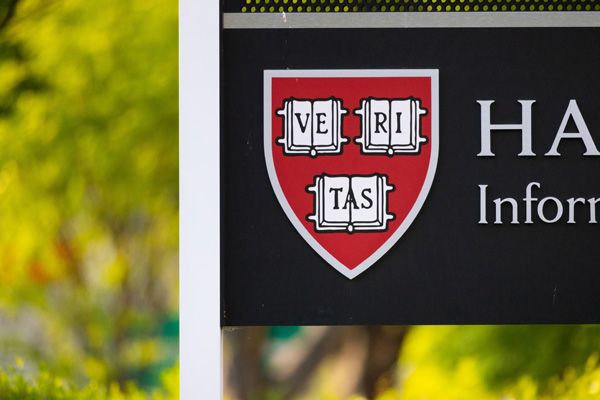Harvard sues Trump administration over international student ban

[Harvard University. Photo Credit:Unsplash]
Harvard University filed a lawsuit against the Trump administration Friday after the Department of Homeland Security (DHS) revoked the school’s authorization to enroll international students.
The decision threatens the legal status of more than a quarter of its student body.
The lawsuit, filed on May 22nd, less than 24 hours after the revocation was announced, seeks to block the unprecedented government action that could force thousands of students to leave the country.
A federal judge immediately issued a temporary restraining order, halting the government’s action until a hearing scheduled for next week.
The restraining order provided short-term relief for over 7,000 international students, many of whom faced the possibility of deportation or disrupted academic plans.
“Without its international students, Harvard is not Harvard,” the university stated in its court filing.
The confrontation stems from a months-long conflict over data DHS demanded from Harvard regarding its international student population.
The escalating conflict began when Homeland Security Secretary Kristi Noem demanded access to student academic, legal, and disciplinary records in an April 16 letter.
Harvard submitted limited data on April 30, including visa status and enrollment records, but refused to provide details on protest activity or internal discipline not required by law.
When DHS declared the submission incomplete, tensions escalated rapidly.
In subsequent exchanges, DHS expanded its demands to include information on students’ criminal histories, threats, and “dangerous or violent activity.”
Despite Harvard providing additional documents, the university drew the line at releasing certain sensitive data without a court order.
DHS retaliated by terminating Harvard’s certification May 23, though Harvard lawyers noted the order was issued “without explaining why or citing any regulation with which Harvard failed to comply.”
Harvard’s constitutional challenge centers on First Amendment violations and procedural failures.
The university argues that DHS illegally conditioned access to international enrollment on surrendering constitutional rights.
“The government has casually discarded core First Amendment protections,” Harvard wrote in its complaint.
Noah Feldman, a Harvard Law School professor, said the government’s failure to cite specific regulations could prove decisive.
“That violates the Administrative Procedures Act, as well as the due process clause of the Constitution,” Feldman added.
The legal clash has reverberated across the academic world.
Universities nationwide are alarmed that federal agencies could cut off international enrollment at will.
“This is a grave moment,” MIT President Sally Kornbluth warned her campus.
University of Hawaii President Wendy Hensel said the decision is “reverberating across higher education.”
UC Berkeley’s John Aubrey Douglass called the move “an unprecedented attempt of a hostile federal government to erode the autonomy of all major universities in the U.S.”
The stakes are enormous for American higher education.
International students now comprise more than 25 percent of Harvard’s student body, while reaching 40 percent at Columbia and 33 percent at NYU.
Universities argue international students drive academic excellence, research productivity, and global competitiveness.
Conservative critics counter that the system disadvantages American applicants.
“More of those spaces are consumed by foreigners and fewer are available to American students,” said Jay P. Greene of the Heritage Foundation.
Harvard’s legal victory or defeat could reshape how the federal government regulates international education across the country.

- DoGyung Bae / Grade 10
- St. Johnsbury Academy in Jeju

![THE HERALD STUDENT REPORTERS [US]](/assets/images/logo_student_us.png)
![THE HERALD STUDENT REPORTERS [Canada]](/assets/images/logo_student_ca.png)
